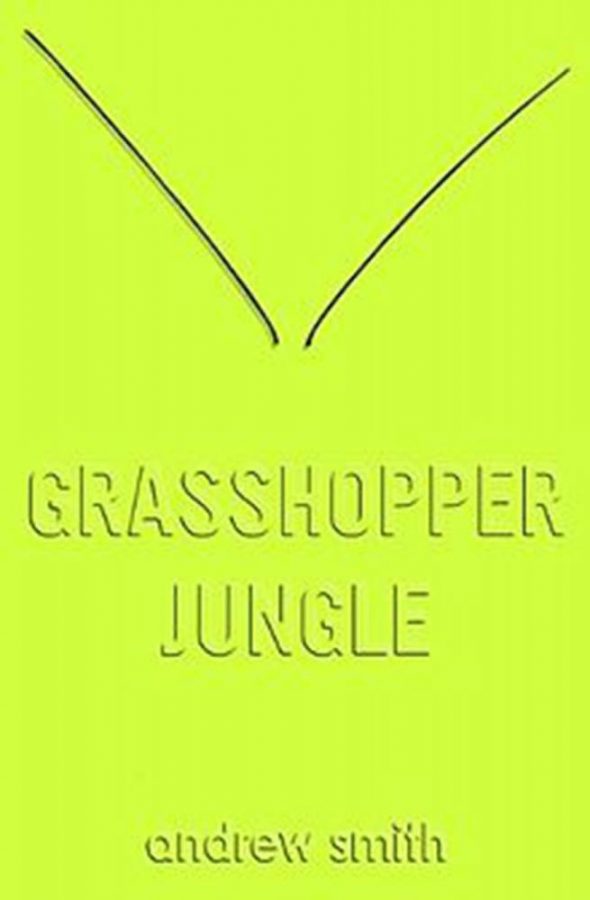“Grasshopper Jungle” hops into young adult scene
In the world of young adult dystopia, a book that doesn’t just rehash the plot to the Hunger Games or Divergent is a hard book to come by.
After hearing that Edgar Wright, director of such classics as “Shaun of the Dead,” “Scott Pilgrim vs. the World” and most recently, “Baby Driver,” had snapped up the film production rights to a new young adult novel, I was immediately intrigued.
“Grasshopper Jungle” is self-described as a tale of two teenage boys at the onset of the apocalypse, but don’t let this seemingly simple plot description fool you.
Author Andrew Smith manages to take this somewhat bland idea and expand it into a bizarre, post-apocalyptic history lesson, all from inside the mind of our 16-year-old narrator, Austin Sczerba.
If you can say one thing about this book, it is definitely unique.
Before reading “Grasshopper Jungle”, I’d have never imagined writer could successfully combine so many discordant elements into one coherent story.
Confused, teen boy narration in a “Fight Club” reminiscent stream of consciousness? Check.
So much profanity and sexual content that it surpasses obscene, instead becoming borderline excessive? Check (our narrator is 16, after all).
Giant, mutant grasshopper super soldiers taking over the world? Check.
Bisexual love triangle between our protagonist Austin, his gay best friend Robbie, and faithful girlfriend Shannon? Check.
All in all, “Grasshopper Jungle” has something for every kind of reader. As long as you can parse your way through pages of pubescent ramblings, mostly concerned with the state of Austin’s junk.
And really, deciphering pages of teenage boy mumbling is not so bad when it is written by Smith, employing a technique of what can only be called lyrical chaos. The combination of pages of choppy sentences and idle thoughts, broken up by vivid imagery describing the latest horror witnessed, is strangely charming.
Thankfully, the many annoyances brought on by being partial to Austin’s thoughts (ALL of his thoughts, unfortunately), feelings, and non-stop commentary are slightly remedied through this writing skill.
Unfortunately, not all of Austin’s faults are so easily fixed. There are definitely issues with his character being patently unlikeable and a sort of blank slate, and I found myself ignoring him for the other characters, like Robbie or Shannon.
However, to my disappointment, Shannon was one of the least fleshed out characters that I’ve ever read in fiction. The entire purpose of Shannon seems to be her position as Austin’s girlfriend, object of his desire, and source of conflict given Austin’s feelings towards Robbie.
This one note treatment of the already heavily male dominated book’s singular female character gives an unwittingly sexist tint to the book, and sadly, makes it hard to read from a female perspective.
“Grasshopper Jungle” is definitely not a book for the faint-hearted, or close minded. But if you’re interested in a fresh take on the depressingly dull young adult apocalypse genre, and can ignore it’s “boys only” vibe enough to admire the story, this is definitely a book worth checking out.

